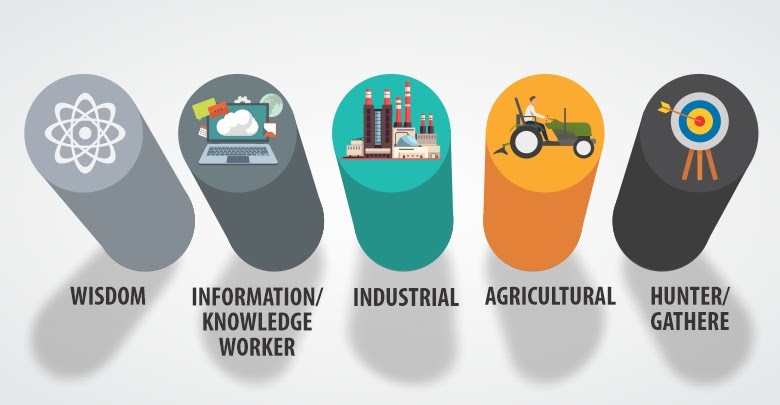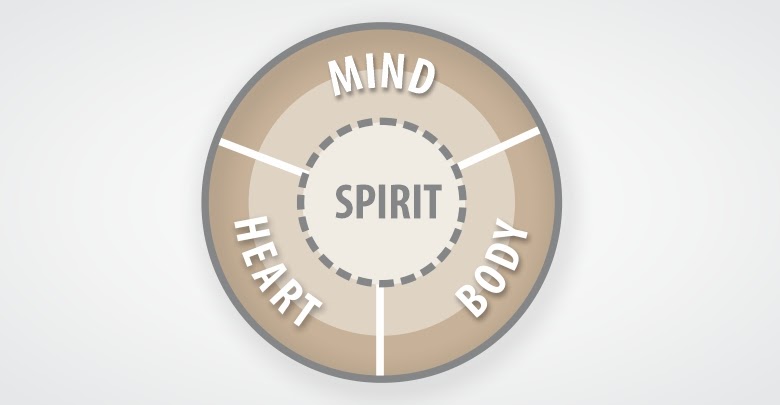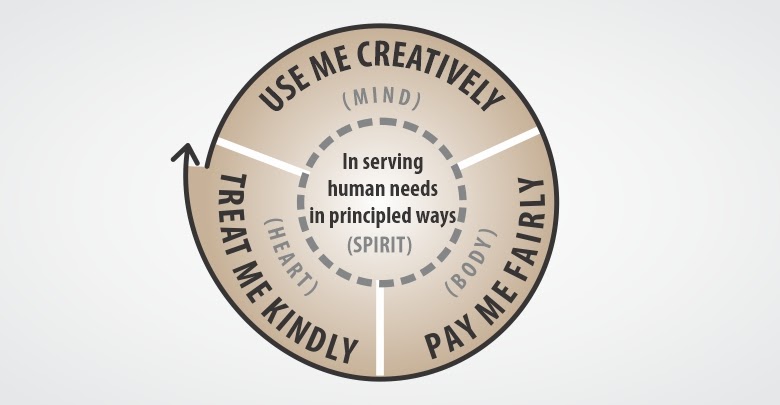The Whole Person Paradigm

This article is extracted from Stephen Covey’s book the 8th Habit. In the first part of his book he argues that many of our “modern” management practices come from the Industrial Age management tactics, that are mainly based on working with manual workers and treating them as “things”. He identifies the problem as a bad management with applying the Industrial Age control model, in a world that now is in, what he calls it, the “Knowledge Workers Age”
When you apply the “thing” mindset to people from the Industrial Age it does not recognize their true worth and creative potential. And this approach suffocates people’s highest talents and motivation and creates low-trust relationships. Therefore, a paradigm shift. Covey introduces the Whole Person Paradigm that embodies all human elements that we need to pay attention to, awaken, and consciously develop.
In this article the Whole Person Paradigm, the human needs, the human intelligences and their highest manifestations are explained. By reading this article a trainer can firstly reflect on his/her paradigm, and also the reflective questions will help them work with other learners/young people. This is relevant to being civically engaged because it is essentially related to the cause you are committed to and it expands the objective view one has on certain issues.
Description
- The evolution and the CHALLENGE – each civilization age introduces a new paradigm
Peter Drucker – one of the greatest management thinkers, puts it this way: “In a few hundred years, when the history of our time is written from a long-term perspective, likely, the most important events those historians will see is not technology and not the Internet. It is an unprecedented change in the human condition. For the first time – literally – substantial and rapidly growing numbers of people have choices. For the first time they will have to manage themselves. And society is totally unprepared for it.”
To understand the core of the challenge we are facing and Peter Drucker’s prophetic statement, we must look at the context of history – namely the five ages of civilization voice, as Covey puts it:
- Hunter and Gatherer Age;
- Agricultural Age;
- Industrial Age;
- Information/Knowledge Worker Age,
- and finally an emerging “Age of Wisdom”

Stephen Covey, The 8th Habit, page 13
First, let’s start with the Hunter and Gatherer Age. Imagine, each day you go out with a bow and arrow to gather food for your family. That’s all you have ever known, seen, and done to survive. Now, imagine someone comes to you and tries to persuade you to become what he calls a “farmer”. What do you think your response would be? You see him scratching the soil and throwing little seeds in the ground, and at first you see nothing. But eventually you see a great harvest. You notice that his yield as a farmer is fifty times greater than yours as a hunter and gatherer. What would you do? You would probably say to yourself: “Even if I want to do this, I don’t know how, and I don’t have the skills or the tools.” After a while, you see the farmer is so productive he sends his children to school and gives them great opportunities. You are barely surviving. Little by little, you are drawn to go through the intense process of learning to become a farmer. You raise your children and grandchildren as farmers. That’s exactly what happened in early history.
Several generations pass, and along comes the Industrial Age. People build factories and learn specialization, taking raw materials in an assembly line with high levels of efficiency. The productivity of the Industrial Age goes fifty times over the family farm. Now, if you are a farmer producing fifty times more than hunters and gatherers and you see an industrial factory outproducing the family farm by fifty times, how would you feel? What would you need to be a player in the Industrial Age?
You would need a completely new skill-set and tool-set. More importantly you would need a new mindset – a new way of thinking.
A hundred years later, the Information/Knowledge Worker Age came. It outproduced the Industrial Age by hundreds and even thousands of times. In the Info/Knowledge Age a top software developer can be more productive than an average software developer by 100-1000%. Quality knowledge work is so valuable that knowledge and information technology become the assets for productivity and development. In time, the knowledge workers will eventually downsize the Industrial Age workforce, and we see this already happening.
Peter Drucker compares the Industrial – Manual Worker Age with today’s Knowledge Worker Age in this way:
“The most important and truly unique contribution of management in the 20th century was the fifty-fold increase in the productivity of the manual worker in manufacturing. The most important contribution management needs to make in the 21st century is to increase the productivity of knowledge workers. And for this to happen, we need to let go of the Industrial mindset of management and adopt a new level of thinking that will unleash the human potential.”
The challenge: We live in a Knowledge-Worker Age, but operate in a controlling Industrial Age model that absolutely suppresses the release of human potential. The mindset of the Industrial Age still dominates today’s workplace and the fact is that people have taken this same controlling mindset at home. It is in our culture and upbringing, it is in the way we communicate with our spouses and try to manage, motivate, and discipline our children. This mindset of control and treating people like “things” cannot work in the Knowledge Worker Age and the new economy/society.
THE “THING” MINDSET OF THE INDUSTRIAL AGE
The main assets and primary drivers of economic prosperity in the Industrial Age were machines and capital – “things”. People were necessary but replaceable. When all you want is a person’s body and you don’t really want their mind, heart or spirit, you have reduced a person to a thing.
So, many of our “modern” management practices come from the Industrial Age. It gave us the belief that you have to control and manage people. It gave us a view of accounting, which makes people expense and machine assets. Think about it. People are put on the Profit/Loss statement as a piece of expense equipment is put on the balance sheet as an investment. It gave us the “carrot and stick” motivational philosophy (the carrot for motivation – the stick for punishment and fear).
The problem is that today we still apply the Industrial Age control model to the Knowledge Workers. Because many in a position of authority do not see the true worth and potential of their people and do not understand human nature, manage people as they do things. This lack of understanding prevents them to tap into the highest motivations, talents, and the genius of people.
What happens when you treat people like things today?
It insults them, it alienates them, it depersonalizes work and creates low-trust, sensitive, insecure culture. What happens when you treat teenagers like things? It, too, insults and alienates them, depersonalizes family relationships and creates low-trust, frustrations, and rebellion.
Covey argues that the Knowledge Worker Age is based on a new paradigm, which is entirely different than the “thing” paradigm of the Industrial Age. He calls it “The Whole Person Paradigm”.
- The WHOLE PERSON PARADIGM
The fundamental truth is that human beings are not “things” needed to be controlled and motivated, so Covey introduces the four-dimensional – body, mind, heart, and spirit – paradigm, one that reflects a fundamental view of human nature. The “Whole Person Paradigm” is a view of who we are.

The 8th Habit, page 21
In both Western and Eastern philosophies and cultures, you will fundamentally find these 4 elements of human nature. Different words are used, but they reflect the same four universal dimensions of life. The spirit is in the middle because it consists of the values and principles a person holds.
Covey links these elements with the four basic needs and motivations of all people:
- The MIND needs TO LEARN (growth and development)
- The HEART needs LOVE (emotions, relationships)
- The BODY needs TO LIVE (survival)
- The SPIRIT needs TO LEAVE A LEGACY (meaning and contribution).
Now, let’s take a look at a person at the workplace. Based on the Whole Person Paradigm, what is the approach that managers should have with their workers? It is presented in the picture below.

The 8th Habit, page 23
Today people have choices. Many more choices than they did in the past. It’s up to the person’s choice of how much he/she will use it for the work he/she needs to do. He/she can do the bare minimum or completely engage him/herself in the work. The choice will depend on our abilities to tap and nurture the four human needs. First is making him/her understand his/her role in the organization (in society), so the person feels that he/she is making a meaningful contribution. Then, you have to be kind and respectful and give tasks that will challenge his/her creativity and intellectual capacity. And when it comes to working, he/she needs to feel that he/she is being paid fairly. If people do not pay attention to all of these elements, you cannot expect to utilize their fullest creative potential and contribution.
This is the same in family relationships and how they treat each other. Become aware of the person’s basic needs from each element (mind, heart, body, spirit) and treat them accordingly.
- Trainers and the Whole Person Paradigm
The Whole Person Paradigm can be a good approach to engage in a meaningful discussion with other learners and young people. It can first be applied and reflected on by each trainer individually.
Reflect on the personal values (assessment link article) and the meaningful work you are doing. Reflect on your strength and the things you are best at – does the current environment challenges your strengths? How do you treat other people? Do you build meaningful and long-lasting relationships? Why/Why not?
The Whole Person Paradigm can be used as a preparation tool as well. Become aware of the 4 basic needs of human nature (to learn, to live, to love, to leave a legacy) and you can prepare accordingly for your audience. Answer the following questions and you will be more prepared:
| Question | Answer |
| What is the culture the learners come from? (spirit) | |
| What are the values appreciated in their local communities? (spirit) | |
| What is most important for them? How do they see the meaning? (spirit) | |
| What are their intellectual capacities and background – school, faculty, etc.? (mind) | |
| What is their level of academic background (bachelor, Master etc.)? – (mind) | |
| Are they coming in a group that has already established communication and relationship or are they coming as individuals? Do they already know each other? (heart) | |
| What is their age? And emotional maturity? (heart) | |
| What logistics do I need to prepare for the training? (body) | |
| What is the room/space like? Is there enough space, air, and light? (body) |
These are some questions that can help you to better prepare for your training, coming from the Whole Person Paradigm perspective. There are many more you can think of by putting this Paradigm as a reference for thinking. If you are interested more about it read the book The 8th Habit.
Why did I choose this tool?
This approach to human nature and its basic elements is simple and unique. It helped me as a trainer and leadership coach in my reflection process. If one applies it personally and reflects on it in the behavior and relationships with others he/she will see the positive consequences. This article brings awareness to the importance of the paradigm we have and the importance of re-evaluating and reflection.
By understanding the Whole Person Paradigm more trainers become more sensitive to the values and beliefs held by individuals and the group of learners. It brings awareness to their personal and professional growth.
Suggested Reflection Questions:
What behavior comes from the Industrial Age mindset in my everyday life?
Which of my actions are related to the Industrial Age mindset?
Which element from the Whole Person Paradigm is the most neglected for me personally?
Which element is most neglected in general in the society I live and work in?
Point 3 Trainers and the Whole Person Paradigm provides reflection questions from the perspective of preparation for trainings. The questions are based on the 4 basic human needs provided from the Whole Person Paradigm.
Exercise:
In groups, in a classroom
“The significant problems we face cannot be solved at the same level of thinking we were when we created them.”
– Albert Einstein




